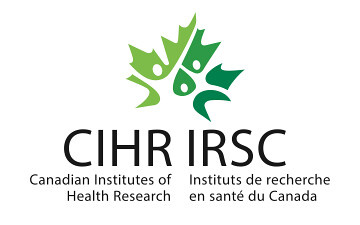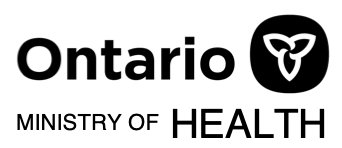
Emilie Belley-Côté
Professional Title
effectiveness of surgical ablation on atrial fibrillation.
The start of our third decade as a research institute converged with the unprecedented challenges wrought by the COVID-19 pandemic. Still, we forged ahead – completing and publishing more than a dozen high-impact studies, and breaking ground with programs in digital health, translational research, and biomarker discovery. We hope you enjoy this 2022 update on our research since the pandemic began.
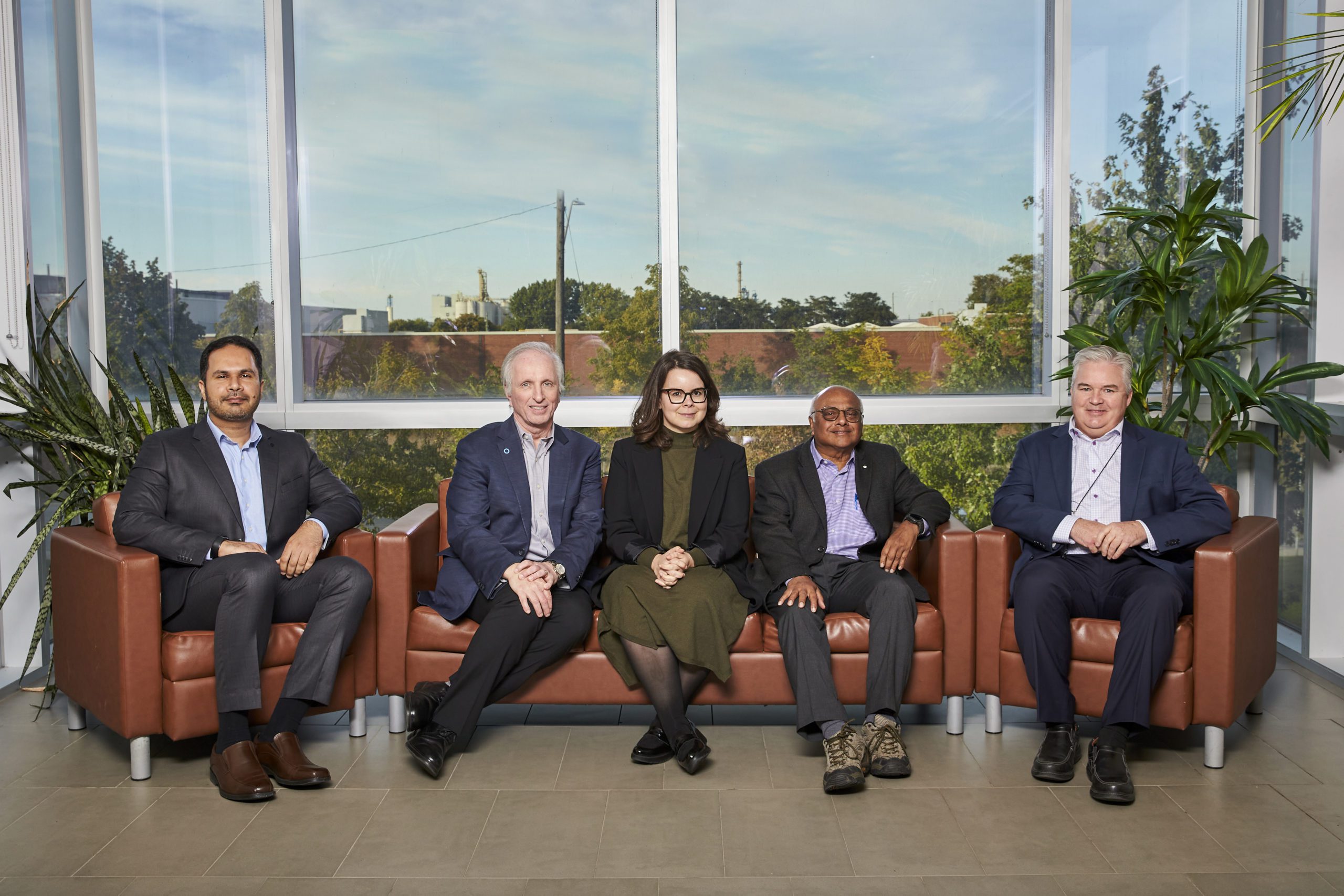
2022 – Killam Prize Health Sciences National Research Council Canada
2022 – Margolese National Heart Disorders Prize, UBC DoM
2022 – CCS Research Achievement Award
2022 – CCS/CIHR Mid-Career Lecturer Award in CV Sciences
2022 – ADA Outstanding in Clinical Diabetes Research
2022 – World Heart Federation’s Lifetime Achievement Award
2022 – Royal Society of Canada’s Academy of Science Fellow
2022 – CSEM Robert Volpe Distinguished Service Award
2022 – CASM Nursing Research Excellence Award
2022 – Dr. Nanette K. Wenger ‘Research Goes Red’ Award, AHA
2022 – #1 Best Scientist, Canada; #21 Best Scientists in World, Research.com
2022 – CIHR Maud Menten New Principal Investigator Prize in Genetics
2021 – CIHR-CCS Distinguished Lecturer in Cardiovascular Sciences
2020 – McLaughlin Medal (medical sciences), Royal Society of Canada
2020 – Margolese National Heart Disorders Prize, UBC DoM
2020 – South Asian Health Foundation Lifetime Achievement
2020 – Canadian Academy of Health Sciences (CAHS) Fellow
Led by Salim Yusuf, our global study of a polypill (TIPS-3, NEJM, 2020) was found to be a highly effective and cost-effective strategy to meet global targets of reducing CVD by 30% by 2030.
A meta-analysis of TIPS-3, HOPE-3 and PolyIran led by Philip Joseph (Lancet 2021) found that polypill of aspirin, statin and blood pressure meds slashed heart attack risk by 53%, stroke by 51% and deaths from CV causes by 49%.
PJ Devereaux and Maura Marcucci found that tranexamic acid (TXA) reduced life-threatening, major and critical organ bleeding in patients undergoing non-cardiac surgery – without increasing major vascular complications (POISE-3, NEJM, 2022).
In the international RCT, they also found no difference in patient outcomes between hypo- and hypertension management strategies in non-cardiac surgery.
“This safe, effective way to reduce surgical bleeding could help with the annual shortage of 30 million blood product units”
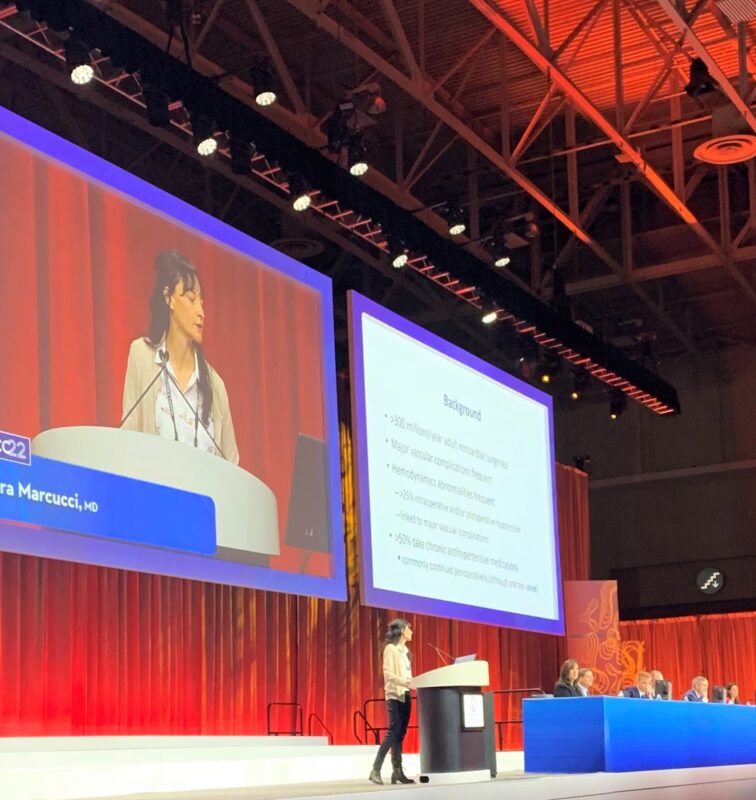
The largest trial in patients with rheumatic heart disease (RHD) has found that in those patients with atrial fibrillation (AF), vitamin K antagonists reduced cardiovascular events and mortality, without increasing major bleeding, compared to rivaroxaban (INVICTUS, NEJM, 2022).
Stuart Connolly and team randomized 4565 patients in 24 low to middle-income countries in Africa, Asia, India, and Latin America, where RHD-associated AF is a major health concern. With an average age of 51 years, 72% of patients were female.
The trial’s national leader in India, Ganesan Karthikeyan, presented the results at ESC 2022.
“This is a blueprint for future trials of understudied diseases in underrepresented populations to generate clinically relevant results”
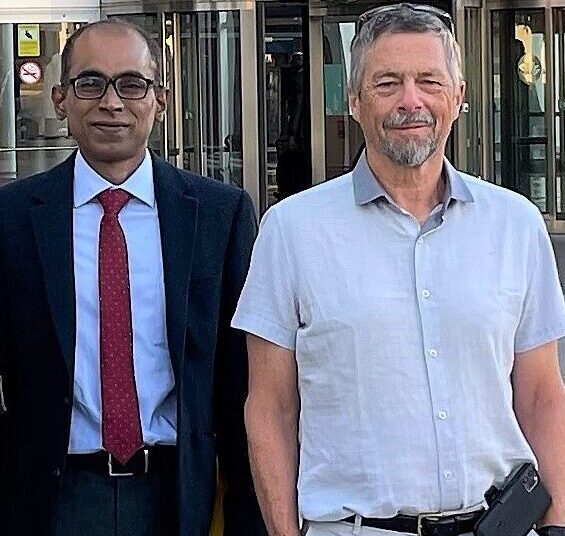
Ashkan Shoamanesh found in a phase-2 RCT (PACIFIC-Stroke, Lancet, 2022) that the FXIa inhibitor, asundexian, did not reduce composite of covert brain infarction or ischemic stroke in patients with acute, non-cardioembolic ischemic stroke. There was no significant increase in risk of major or intracranial bleeding; treatment with asundexian 50mg reduced recurrent symptomatic ischemic strokes and TIAs – particularly among patients with atherosclerosis. A phase-3 RCT in this patient population (OCEANIC-Stroke) is underway.
Mike Sharma found that a phase-2 trial treating patients with prior ischemic stroke or high-risk TIA with the FXIa inhibitor milvexian (AXIOMATIC-SSP) yielded sufficient efficacy for ischemic stroke, low bleeding profile, and overall safety and tolerability to merit a phase-3 study of the same patient population.
Shoamanesh and international collaborators are evaluating whether the anticoagulant, edoxaban, can help prevent stroke in high-risk AF patients with previous intracranial hemorrhage, in a large trial on five continents. (ENRICH-AF).
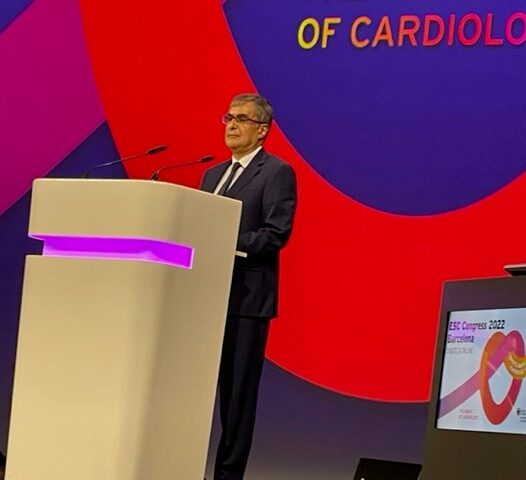
Richard Whitlock and Connolly found that a quick, simple and safe procedure during cardiac surgery – the removal of the left atrial appendage – in patients with atrial fibrillation (AF) reduced their stroke risk by 30% (LAAOS III, NEJM, 2021). They’re starting to investigate if the same will happen for patients without AF (LeAAPS).
Whitlock and Emilie Belley-Côté are investigating concomitant surgical AF ablation in patients undergoing cardiac surgery (SAFE).
Andre Lamy, PJ Devereaux and Whitlock found that troponin is a fast, effective predictor of risk in patients undergoing cardiac surgery (VISION Cardiac Surgery, NEJM, 2022).
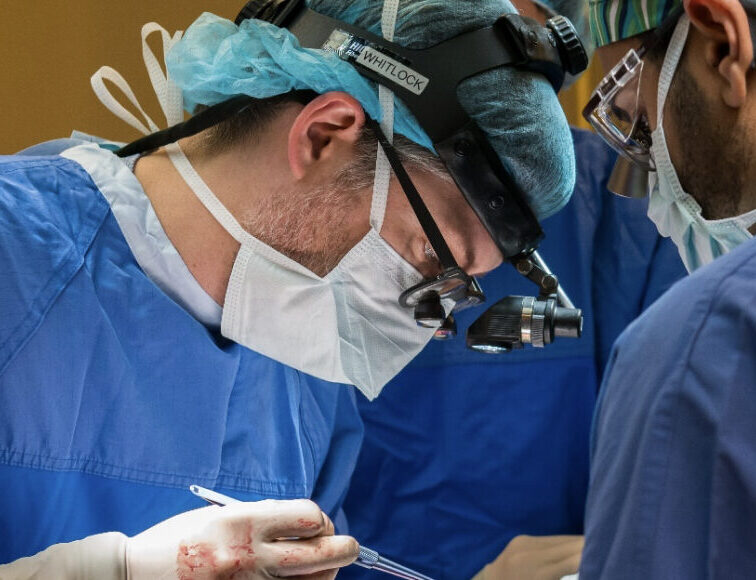
Most CVD occurs in LMICs where flu vaccinations are extremely low. The first clinical trial of the flu vaccine’s effectiveness in patients with heart failure – more than 5,000 patients in 10 countries across Africa, Asia and the Middle East – showed flu vaccines greatly reduced the risk of life-threatening complications (IVVE, Lancet Global Health, 2022).
John Eikelboom and Sanjit Jolly found that neither colchicine, aspirin, nor combination of rivaroxaban and aspirin slowed the progression of COVID-19 in inpatients or outpatients (ACT, Lancet Respiratory Med, 2022). Noel Chan and Guillaume Paré are studying coagulation biomarkers to accelerate discovery of effective therapies for COVID (ACT COAG).
In 40,000 participants in 14 countries, Darryl Leong is investigating who gets COVID, why some people get sicker than others, and factors in long-COVID (PURE-COVID).
Seropositivity data confirmed a 23.6% infection rate in South Asians in the Toronto area (COVID CommUNITY-SA, CMAJ Open 2022). A similar study is underway at 3 First Nations communities in Canada.

Since Shamir Mehta demonstrated better patient outcomes from opening all narrowed coronary arteries rather than just the blocked artery that caused the heart attack (COMPLETE, NEJM 2019):
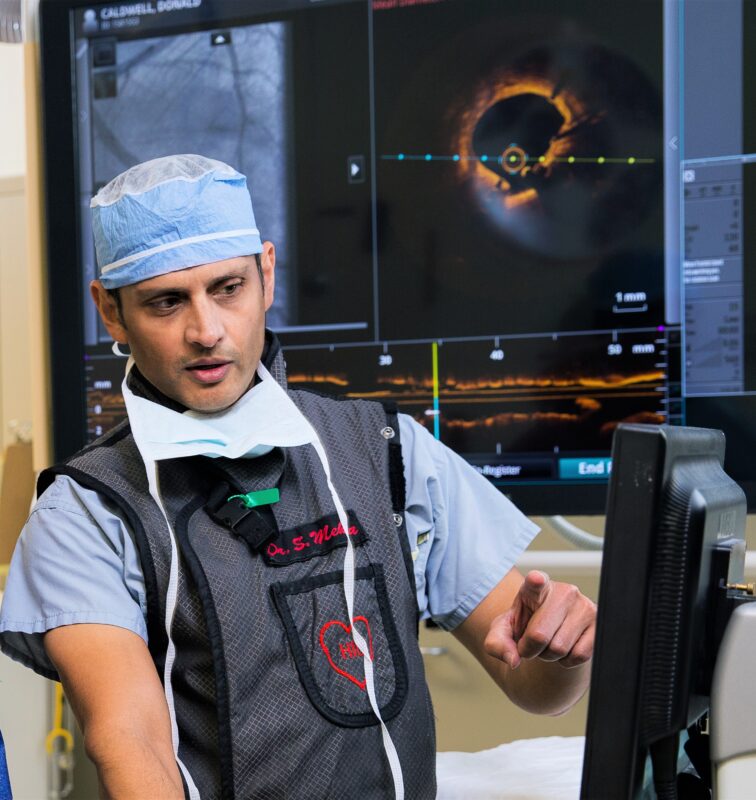
Sanjit Jolly found use of ultrasonography for femoral access in cardiac procedures did not reduce bleeding or vascular complications – but it did facilitate access (UNIVERSAL, JAMA Cardiology, 2022).
Shamir Mehta found that the PCSK-9 inhibitor alirocumab, added to high-dose statin therapy, reduced LDL cholesterol in patients undergoing primary percutaneous coronary intervention for ST-segment elevation myocardial infarction (EPIC STEMI, EuroIntervention, 2022).
Jolly demonstrated improvement in stent technology in a STEMI patient registry (part of the ongoing CLEAR OASIS 9 trial). The bio-absorbable SYNERGY stent resulted in lower major adverse cardiovascular events compared to performance goals based on prior trials.
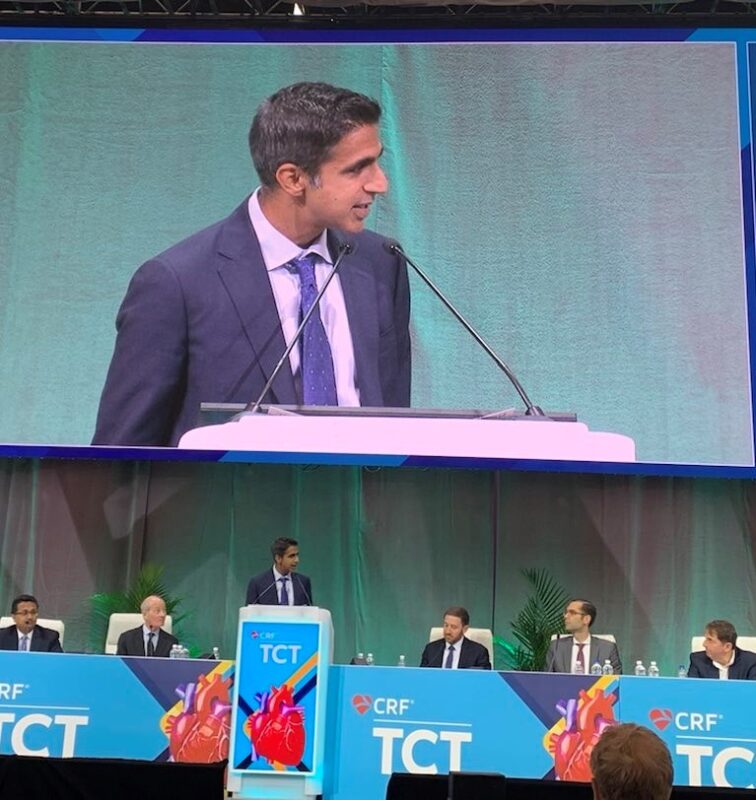
Led by Devereaux and Michael McGillion, PHRI has been researching virtual care and remote automated monitoring of patients for years prior to the COVID-19 pandemic, which has escalated the need for remote care.
They found that take-home technology used by post-surgery patients resulted in less pain experienced, and more medication errors caught (PVC-RAM-1, BMJ, 2021). PVC-RAM-3 is underway.
McGillion and Devereaux are investigating different wearable technologies for monitoring patients at home after non-cardiac surgery (VISION-2).
Jeff Healey and the AF SCREEN International Consortium found a 10-fold increase in the detection of AF when patients wore a small, adhesive heart monitor (chest patch) in the study (SCREEN-AF, JAMA Cardiology, 2021).
Healey found that more than 90% of patients with a newer type of defibrillator inserted under the skin (S-ICD) had fewer complications compared to the traditional TV-ICD defibrillator placed in the heart or heart vessels. (ATLAS S-ICD, Annals of IM, 2022).
With Marco Alings, Amphia Ziekenhuis and Duke University’s Renato Lopes, Healey is leading a trial of more than 4000 patients at 299 sites (ARTESiA) investigating if apixaban can prevent strokes in people with device-detected subclinical, or ‘silent’ AF (SCAF) without increasing bleeding.

“Our data ratifies that eating large amounts of poor-quality carbohydrates is an issue worldwide”
With their 20-year epidemiology study in 27 countries (PURE), Mahshid Dehghan, Andrew Mente, Sumathy Rangarajan, Salim Yusuf and collaborators continue to explore how our health is affected by what we eat, including:

“We seek to understand risk and prevent chronic disease – at all life stages – including in specific populations”
Genetic factors are strongly associated with the development of gestational diabetes among South Asian women (START, eLife, 2022).
A deeply phenotyped cohort study (CAHHM) had 60% female participants and a significant proportion of Chinese and Black Canadians, and current cohorts of Indigenous and South Asians.
Anand and her team have investigated how community-level factors, individual health behaviours and access to health services are associated with subclinical vascular disease, cognitive function, fat distribution, and the development of chronic diseases.
They are determining prevalence, risk factors, and association between cognitive performance, and silent strokes imaged in MRI, in cohorts of CAHHM and sister study, PURE-MIND.
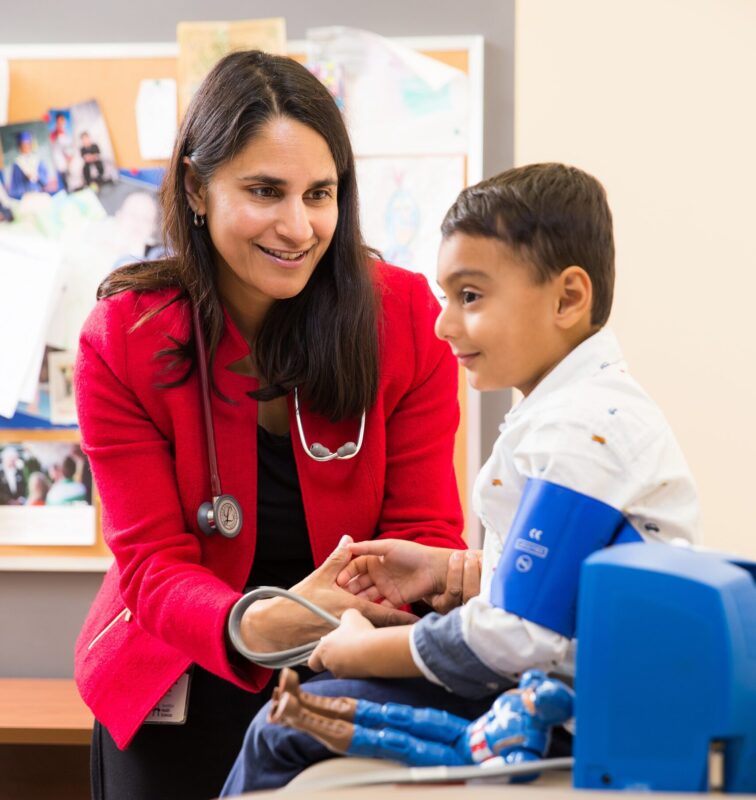
Alongside Fort McKay Nation (Alberta), Lac La Ronge Indian Band (Saskatchewan); Six Nations of the Grand River (Ontario) and Wendat Huronne (Quebec), we work to advance our understanding of the environmental, socioeconomic and biological determinants of differences in health.
Working with Silent Genomes, we will establish – through an Indigenous lens – processes for safe governance of biological samples and genomes data.
Integrating genetic and biomarker measurements to prioritize drug targets, Guillaume Paré and Salim Yusuf, with Bayer, created the Biomarker Discovery Partnership Program – testing ‘OMIC markers in 12,000 PURE participants. We showed that circulating levels of ACE2 was a strong biomarker predictive of incident mortality and cardiometabolic disease (S Narula, Lancet 2020).
New protein drug targets have been characterized for AF (P Shemirani, JACC 2022); T2DM (M Pigeyre, Diabetes Care 2020). Method innovation at the CRLB-GMEL lab has included RV-EXCALIBER to study rare genetic variants and their contribution to early-onset disease (R Lali , Nature Comm 2021) and AutoMitoC to derive an emerging mitochondrial biomarker from genetic microarray data (M Chong, eLife 2022, Neurology 2022).
Jason Roberts is developing gene-guided therapies for heart rhythm disorders, driving a translational program with international collaborators from basic science, genetics, and clinical medicine.

While scientists at the CRLB-GMEL lab and biobank and at the adjacent Thrombosis and Atherosclerosis Research Institute (TaARI) have identified many biomarkers and genetic risk factors, those need to be clinically evaluated.
Conversely, many of the clinical study findings by PHRI researchers need their biological pathways understood better – by working with basic researchers at TaARI and CRLB-GMEL.
That is the aim of PHRI’s new strategic translational research for vascular health (STRIVE) program, led by Paré with support from TaARI’s Jeffrey Weitz and PHRI Deputy Director Hertzel Gerstein.
Combining intensive lifestyle therapy, insulin-mediated normal glucose levels, metformin and other glucose-lowering drugs can achieve T2D remission in some patients that can last more than a year – Natalie McInnes found in 3 completed and 1 ongoing trials (REMIT series).
Working with Marie Pigyere and Paré in our genetic and molecular epidemiology laboratory, we have identified new genetic variations that cause CV outcomes in people with diabetes, and novel biomarkers for some of these causes, using blood stored in previous diabetes trials such as ORIGIN.
Evidence found by Hertzel Gerstein (REWIND) supported regulatory approval of dulaglutide in the US to reduce CV events in adults with T2D with or without established CVD, and in Canada to reduce stroke.
Analysis of REWIND found dulaglutide reduced cognitive impairment (Lancet Neurology, 2020) and erectile dysfunction (Lancet Endo, 2021); a meta-analysis concluded this class of drugs reduced myocardial infarctions, heart failure and all-cause mortality.

Led by Darryl Leong, we’re studying why cancers develop (PURE-ICE), investigating cancer therapies, optimizing delivery and understanding adverse effects. We’re working to understand the journey of patients with a hematologic malignancy (ORCHID/IMPACT, MFRAIL).
One of the largest prospective international cohort studies of men with prostate cancer (RADICAL PC) is exploring the effects of hormonal therapy and the cardiologist’s role in improving outcomes. We’re seeking to understand the safety and efficacy of permissive cardiotoxicity – allowing a degree of cardiac injury from breast cancer therapies to optimize cancer treatment (SCHOLAR).
We’re conducting research into survivorship challenges in patients with multiple myeloma, patients who have undergone a hematologic stem cell transplant, and patients with a chronic myeloproliferative neoplasm.
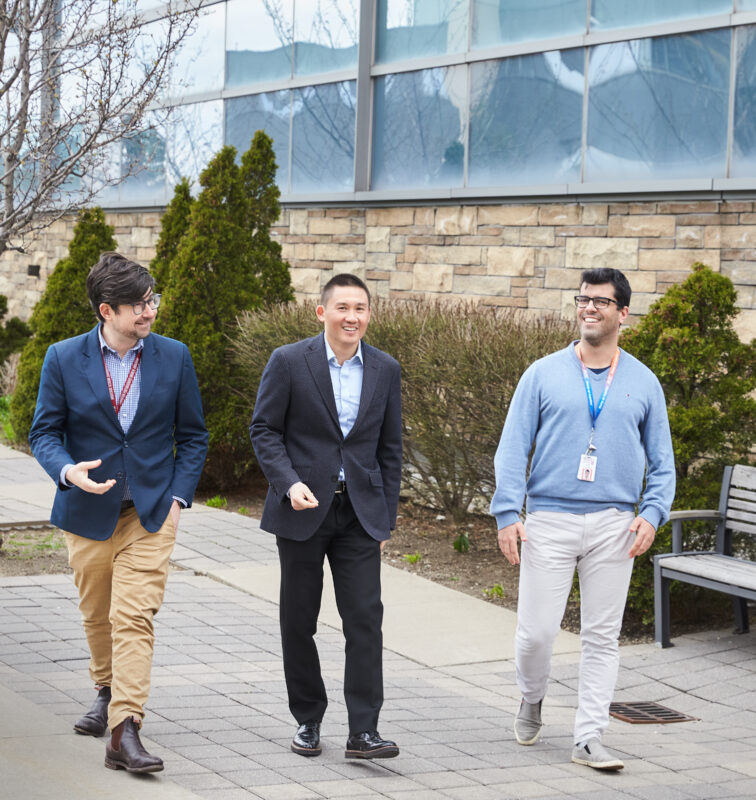
Our renal group spans investigating the causes of kidney disease using a comprehensive ‘omics’ approach, to studying the impact of health systems on the wellbeing of patients with kidney disease.
Mike Walsh and team’s work includes treatments to prevent heart-related deaths in patients with chronic kidney disease -including those receiving dialysis – using the mineralocorticoid receptor antagonist, spironolactone (ACHIEVE), the anti-inflammatory, colchicine (REPAIR), and the roles of thrombosis and mineral metabolism abnormalities.
They are studying the contribution of polygenic risks in patients with advanced chronic kidney disease (GECKO); adverse effects of commonly used medications; the safe treatment of symptoms of chronic kidney disease; the role of health literacy and communication aids in patients developing kidney failure; and the treatment of autoimmune kidney disease in patients with vasculitis (PEXIVAS).

John Eikelboom and Jackie Bosch collaborate with a network of gastroenterologists (INTERBLEED) to study risk factors and outcomes of GI bleeding, which account for half of bleeds leading to adverse CV events in patients getting antithrombotic therapy.
Working with an international network of cardiologists, an analysis of COMPASS found that adding a small dose of rivaroxaban to aspirin reduced the risk of major adverse CV events and saves lives for people with chronic atherosclerosis.
Stuart Connolly found andexanet markedly resulted in stabilizing patients with acute major bleeding associated with the use of a factor Xa inhibitor (ANNEXa-4). He’s now studying if andexanet can prevent uncontrolled bleeding in patients with acute intracranial hemorrhage (ANNEXa-1).
Vinai Bhagirath is looking at predicting bleeding, and Noel Chan is seeking to improve our understanding of triggers for thrombosis, including inflammation’s role, testing low-dose colchicine for patients with peripheral artery disease (LEADER-PAD).

PHRI is a foundational partner in a pan-Canadian research network to find solutions for the growing problem of heart failure (CHF Alliance).
Philip Joseph is investigating the role of colchicine and thiamine in HF due to ischemic heart disease (COLT-HF).
Jorge Wong is testing bariatric surgery on severely obese patients to see the effect on patients living with HF (BRAVE).
Anand is studying diabetes, air pollution, social support and other factors in cardiac dysfunction leading to HF in 2,500 Indigenous people.
Yusuf and Pare will lead analysis of 350+ biomarkers through case:control analysis of 3,000 HF cases from our G-CHF study, and 5,700 matched controls from PURE.

early career researchers

effectiveness of surgical ablation on atrial fibrillation.

Lorem ipsum dolor sit amet, consectetur adipiscing elit. Phasellus auctor ultrices mattis. Nunc sed sem ipsum. Cras ac nulla orci. Quisque sed diam eu dolor tincidunt maximus id nec metus. Duis quis tristique sapien, eget mollis dolor. Duis ornare velit semper quam lacinia, a egestas lacus fringilla. Vestibulum tempor nisl lacinia, finibus quam ac, elementum sapien. Nullam non mi et purus lobortis auctor vel non nunc.
Lorem ipsum dolor sit amet, consectetur adipiscing elit. Phasellus auctor ultrices mattis. Nunc sed sem ipsum. Cras ac nulla orci. Quisque sed diam eu dolor tincidunt maximus id nec metus. Duis quis tristique sapien, eget mollis dolor. Duis ornare velit semper quam lacinia, a egestas lacus fringilla. Vestibulum tempor nisl lacinia, finibus quam ac, elementum sapien. Nullam non mi et purus lobortis auctor vel non nunc.
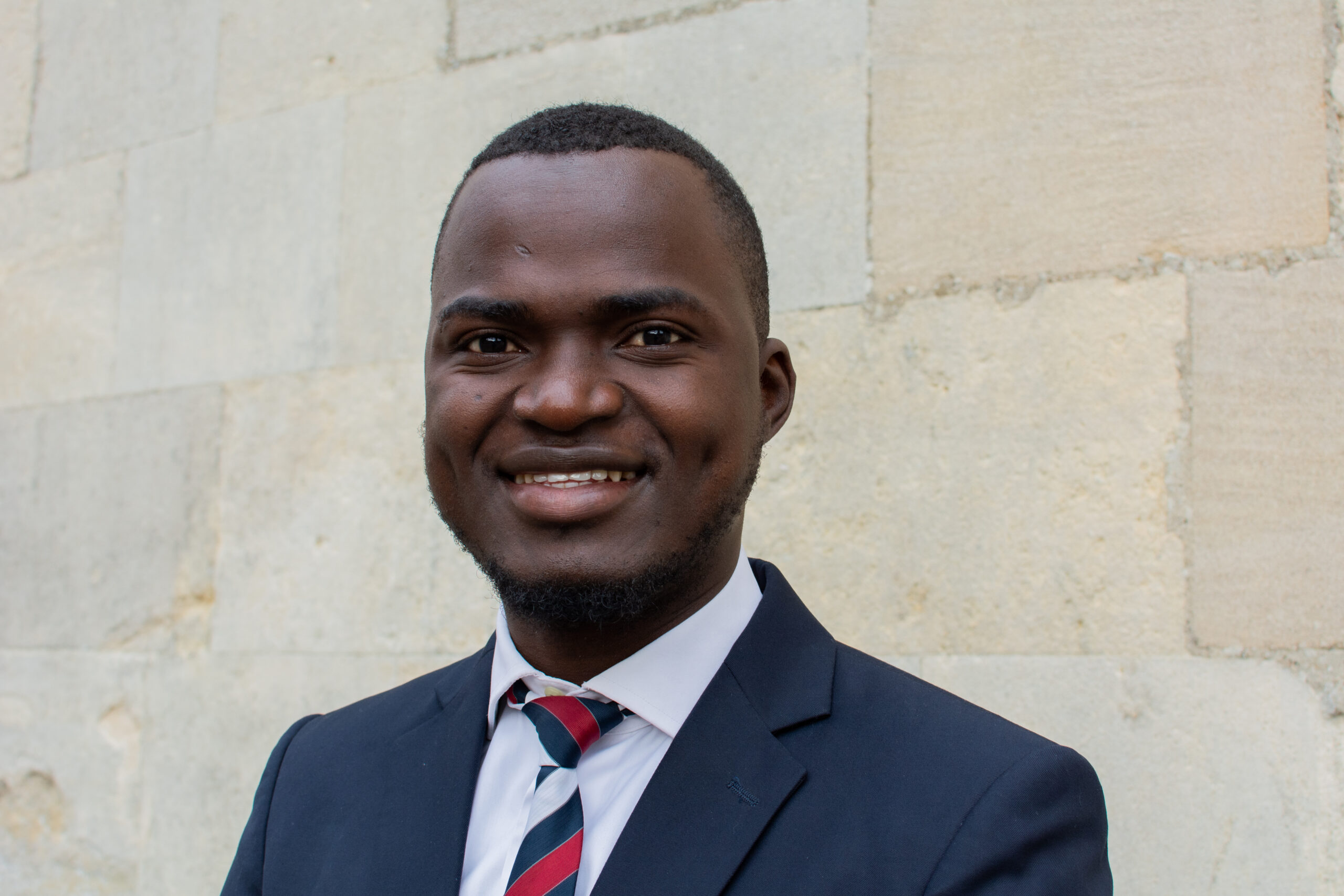
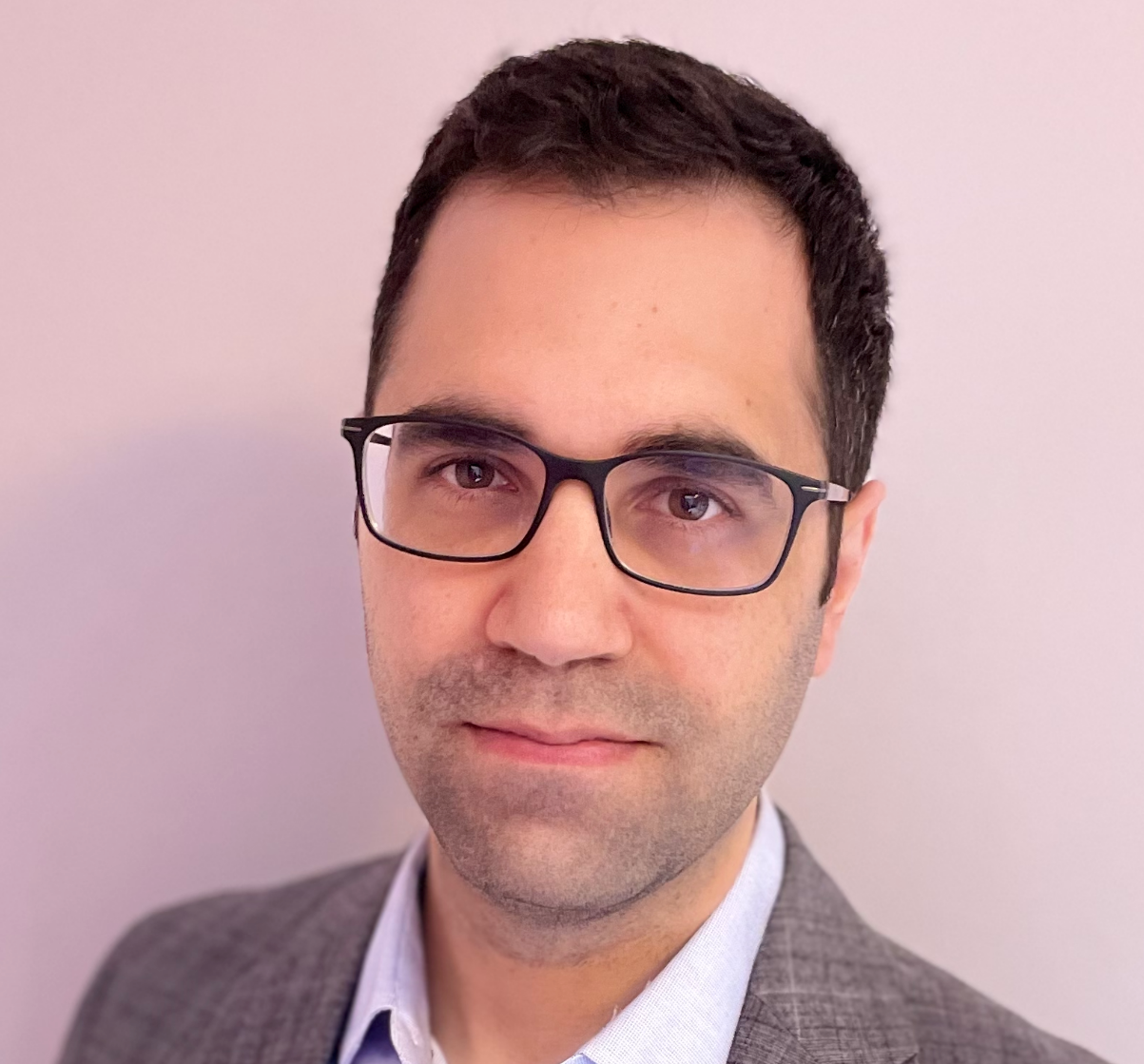
Lorem ipsum dolor sit amet, consectetur adipiscing elit. Phasellus auctor ultrices mattis. Nunc sed sem ipsum. Cras ac nulla orci. Quisque sed diam eu dolor tincidunt maximus id nec metus. Duis quis tristique sapien, eget mollis dolor. Duis ornare velit semper quam lacinia, a egestas lacus fringilla. Vestibulum tempor nisl lacinia, finibus quam ac, elementum sapien. Nullam non mi et purus lobortis auctor vel non nunc.
Lorem ipsum dolor sit amet, consectetur adipiscing elit. Phasellus auctor ultrices mattis. Nunc sed sem ipsum. Cras ac nulla orci. Quisque sed diam eu dolor tincidunt maximus id nec metus. Duis quis tristique sapien, eget mollis dolor. Duis ornare velit semper quam lacinia, a egestas lacus fringilla. Vestibulum tempor nisl lacinia, finibus quam ac, elementum sapien. Nullam non mi et purus lobortis auctor vel non nunc.
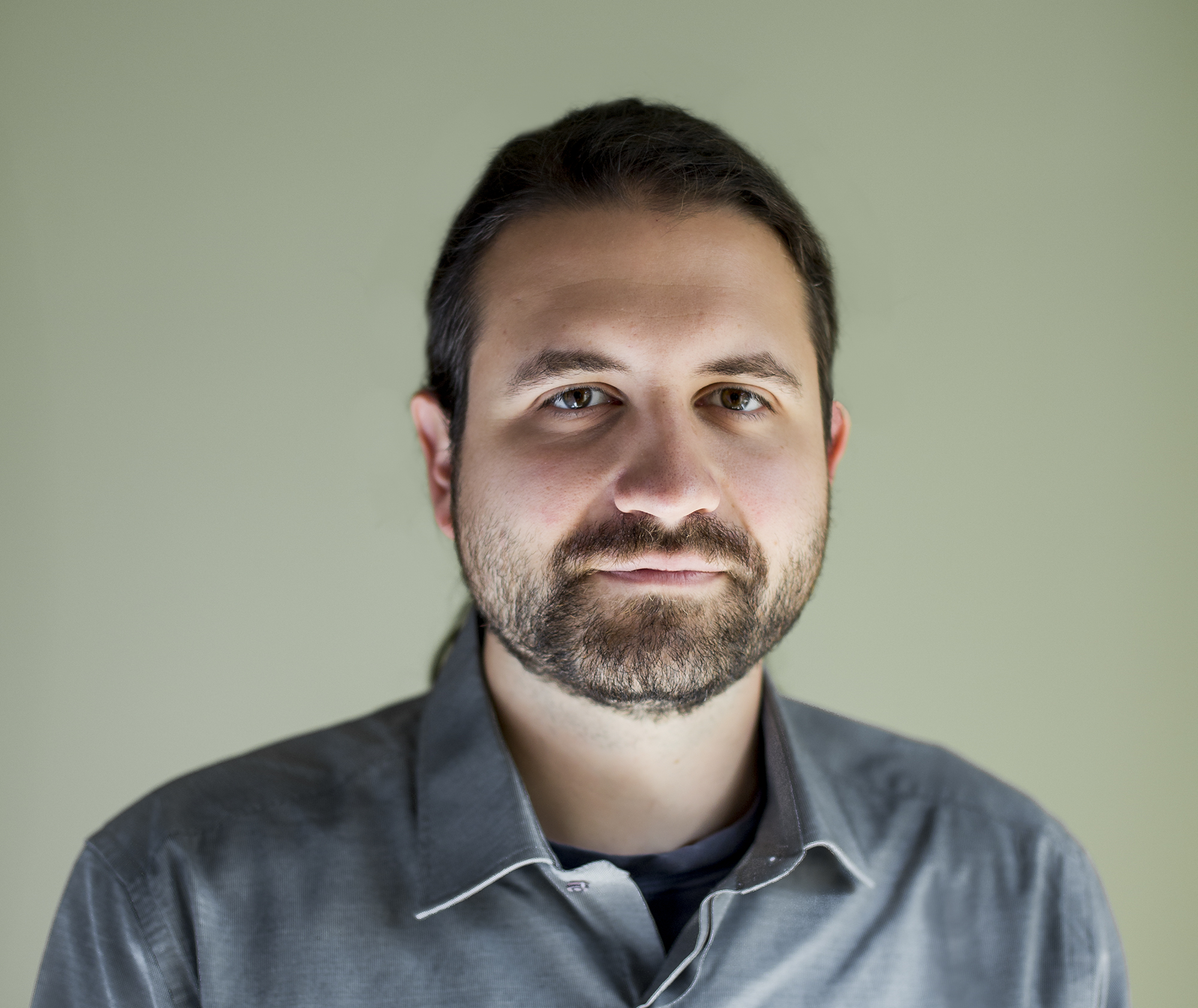
Lorem ipsum dolor sit amet, consectetur adipiscing elit. Phasellus auctor ultrices mattis. Nunc sed sem ipsum. Cras ac nulla orci. Quisque sed diam eu dolor tincidunt maximus id nec metus. Duis quis tristique sapien, eget mollis dolor. Duis ornare velit semper quam lacinia, a egestas lacus fringilla. Vestibulum tempor nisl lacinia, finibus quam ac, elementum sapien. Nullam non mi et purus lobortis auctor vel non nunc.
Lorem ipsum dolor sit amet, consectetur adipiscing elit. Phasellus auctor ultrices mattis. Nunc sed sem ipsum. Cras ac nulla orci. Quisque sed diam eu dolor tincidunt maximus id nec metus. Duis quis tristique sapien, eget mollis dolor. Duis ornare velit semper quam lacinia, a egestas lacus fringilla. Vestibulum tempor nisl lacinia, finibus quam ac, elementum sapien. Nullam non mi et purus lobortis auctor vel non nunc.

Matthew Lanktree is investigating adult nephrology genetics, including clonal hematopoiesis of indeterminate potential as it relates to chronic kidney disease.

Lorem ipsum dolor sit amet, consectetur adipiscing elit. Phasellus auctor ultrices mattis. Nunc sed sem ipsum. Cras ac nulla orci. Quisque sed diam eu dolor tincidunt maximus id nec metus. Duis quis tristique sapien, eget mollis dolor. Duis ornare velit semper quam lacinia, a egestas lacus fringilla. Vestibulum tempor nisl lacinia, finibus quam ac, elementum sapien. Nullam non mi et purus lobortis auctor vel non nunc.
Lorem ipsum dolor sit amet, consectetur adipiscing elit. Phasellus auctor ultrices mattis. Nunc sed sem ipsum. Cras ac nulla orci. Quisque sed diam eu dolor tincidunt maximus id nec metus. Duis quis tristique sapien, eget mollis dolor. Duis ornare velit semper quam lacinia, a egestas lacus fringilla. Vestibulum tempor nisl lacinia, finibus quam ac, elementum sapien. Nullam non mi et purus lobortis auctor vel non nunc.

Lorem ipsum dolor sit amet, consectetur adipiscing elit. Phasellus auctor ultrices mattis. Nunc sed sem ipsum. Cras ac nulla orci. Quisque sed diam eu dolor tincidunt maximus id nec metus. Duis quis tristique sapien, eget mollis dolor. Duis ornare velit semper quam lacinia, a egestas lacus fringilla. Vestibulum tempor nisl lacinia, finibus quam ac, elementum sapien. Nullam non mi et purus lobortis auctor vel non nunc.
Lorem ipsum dolor sit amet, consectetur adipiscing elit. Phasellus auctor ultrices mattis. Nunc sed sem ipsum. Cras ac nulla orci. Quisque sed diam eu dolor tincidunt maximus id nec metus. Duis quis tristique sapien, eget mollis dolor. Duis ornare velit semper quam lacinia, a egestas lacus fringilla. Vestibulum tempor nisl lacinia, finibus quam ac, elementum sapien. Nullam non mi et purus lobortis auctor vel non nunc.

Lorem ipsum dolor sit amet, consectetur adipiscing elit. Phasellus auctor ultrices mattis. Nunc sed sem ipsum. Cras ac nulla orci. Quisque sed diam eu dolor tincidunt maximus id nec metus. Duis quis tristique sapien, eget mollis dolor. Duis ornare velit semper quam lacinia, a egestas lacus fringilla. Vestibulum tempor nisl lacinia, finibus quam ac, elementum sapien. Nullam non mi et purus lobortis auctor vel non nunc.
Lorem ipsum dolor sit amet, consectetur adipiscing elit. Phasellus auctor ultrices mattis. Nunc sed sem ipsum. Cras ac nulla orci. Quisque sed diam eu dolor tincidunt maximus id nec metus. Duis quis tristique sapien, eget mollis dolor. Duis ornare velit semper quam lacinia, a egestas lacus fringilla. Vestibulum tempor nisl lacinia, finibus quam ac, elementum sapien. Nullam non mi et purus lobortis auctor vel non nunc.

Lorem ipsum dolor sit amet, consectetur adipiscing elit. Phasellus auctor ultrices mattis. Nunc sed sem ipsum. Cras ac nulla orci. Quisque sed diam eu dolor tincidunt maximus id nec metus. Duis quis tristique sapien, eget mollis dolor. Duis ornare velit semper quam lacinia, a egestas lacus fringilla. Vestibulum tempor nisl lacinia, finibus quam ac, elementum sapien. Nullam non mi et purus lobortis auctor vel non nunc.
Lorem ipsum dolor sit amet, consectetur adipiscing elit. Phasellus auctor ultrices mattis. Nunc sed sem ipsum. Cras ac nulla orci. Quisque sed diam eu dolor tincidunt maximus id nec metus. Duis quis tristique sapien, eget mollis dolor. Duis ornare velit semper quam lacinia, a egestas lacus fringilla. Vestibulum tempor nisl lacinia, finibus quam ac, elementum sapien. Nullam non mi et purus lobortis auctor vel non nunc.

Lorem ipsum dolor sit amet, consectetur adipiscing elit. Phasellus auctor ultrices mattis. Nunc sed sem ipsum. Cras ac nulla orci. Quisque sed diam eu dolor tincidunt maximus id nec metus. Duis quis tristique sapien, eget mollis dolor. Duis ornare velit semper quam lacinia, a egestas lacus fringilla. Vestibulum tempor nisl lacinia, finibus quam ac, elementum sapien. Nullam non mi et purus lobortis auctor vel non nunc.
Lorem ipsum dolor sit amet, consectetur adipiscing elit. Phasellus auctor ultrices mattis. Nunc sed sem ipsum. Cras ac nulla orci. Quisque sed diam eu dolor tincidunt maximus id nec metus. Duis quis tristique sapien, eget mollis dolor. Duis ornare velit semper quam lacinia, a egestas lacus fringilla. Vestibulum tempor nisl lacinia, finibus quam ac, elementum sapien. Nullam non mi et purus lobortis auctor vel non nunc.

Lorem ipsum dolor sit amet, consectetur adipiscing elit. Phasellus auctor ultrices mattis. Nunc sed sem ipsum. Cras ac nulla orci. Quisque sed diam eu dolor tincidunt maximus id nec metus. Duis quis tristique sapien, eget mollis dolor. Duis ornare velit semper quam lacinia, a egestas lacus fringilla. Vestibulum tempor nisl lacinia, finibus quam ac, elementum sapien. Nullam non mi et purus lobortis auctor vel non nunc.
Lorem ipsum dolor sit amet, consectetur adipiscing elit. Phasellus auctor ultrices mattis. Nunc sed sem ipsum. Cras ac nulla orci. Quisque sed diam eu dolor tincidunt maximus id nec metus. Duis quis tristique sapien, eget mollis dolor. Duis ornare velit semper quam lacinia, a egestas lacus fringilla. Vestibulum tempor nisl lacinia, finibus quam ac, elementum sapien. Nullam non mi et purus lobortis auctor vel non nunc.
operational excellence
PHRI adapted quickly to the pandemic changes in large part because of the round-the-clock dedication and innovative problem-solving of our Information Technology and Communications department. Program Management, Statistics, Contracts, Finance, QA and Admin also tirelessly supported study teams around the world in new ways. Two years into the pandemic, our steadfast Head of Operations, Janette Panhuis, retired after 12 years of service, and passed the baton to Muhammad Hameed. He carries on the tradition of streamlined efficiencies while forging a new path ahead.
Our International Fellows are long-time collaborators, often PHRI-trained, who act as ‘our boots on the ground’ for research conducted in dozens of countries on 6 continents
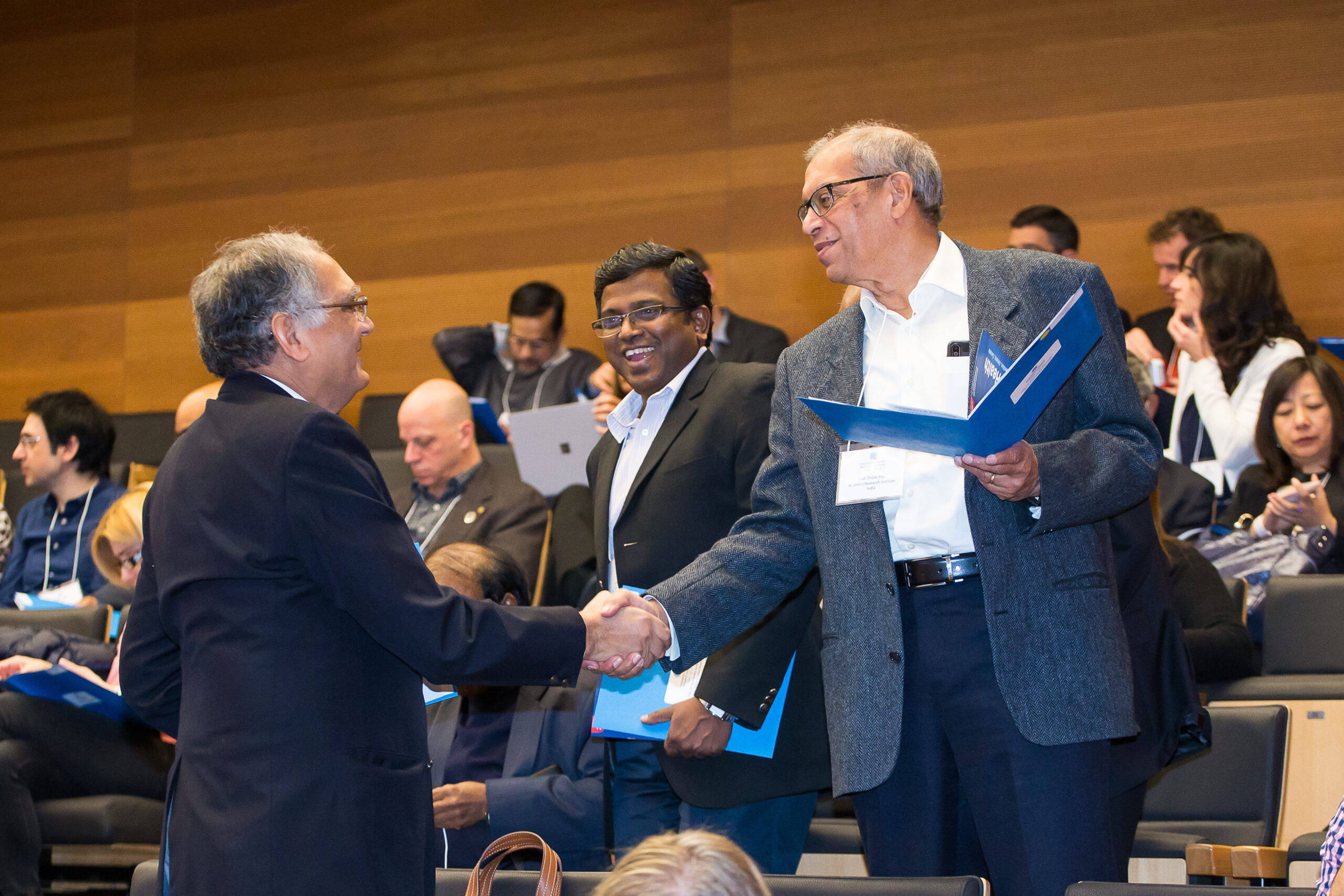
PHRI LECTURESHIP SERIES
Since the pandemic began, we have held:
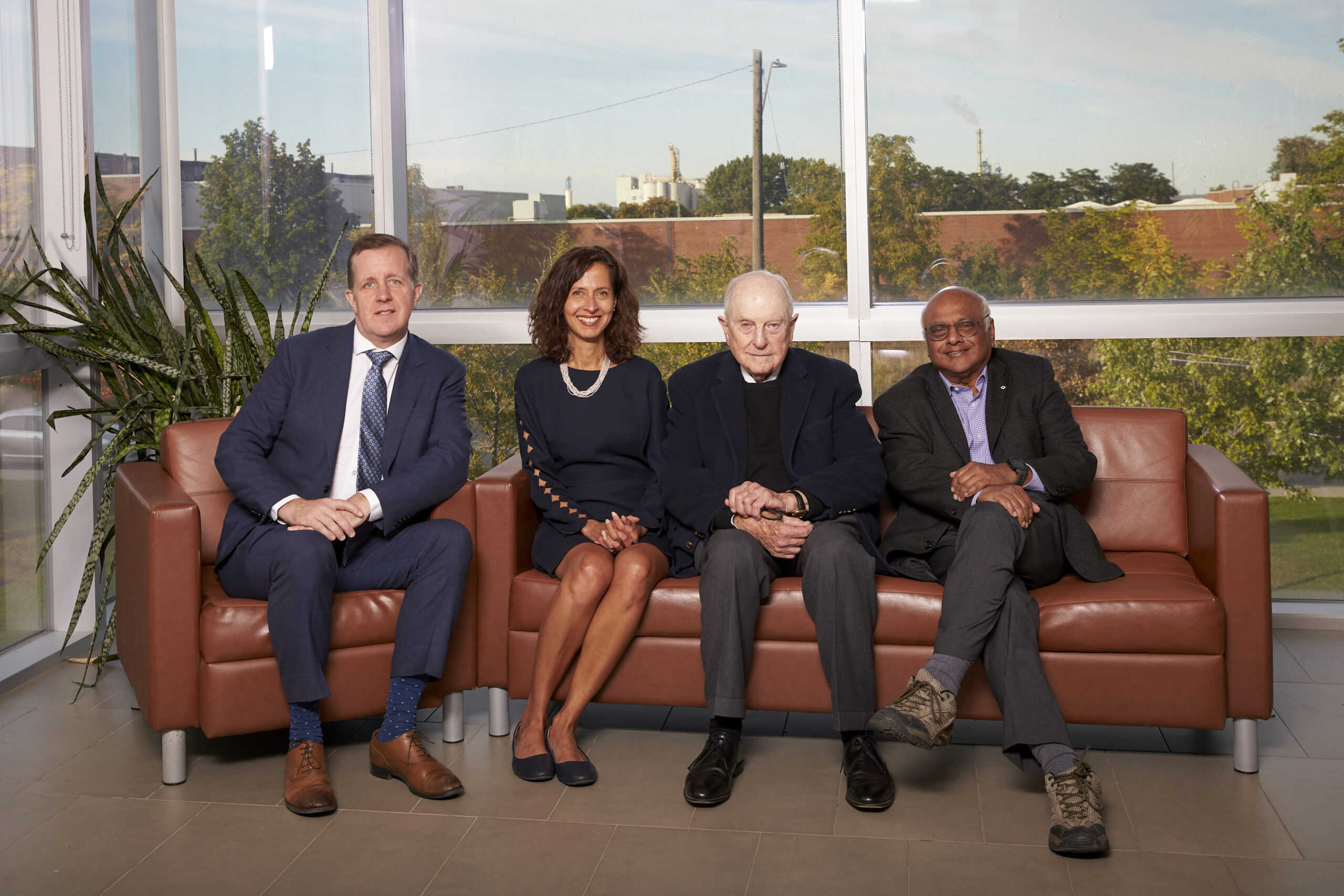
0
0
0
0
0
0
0
0
+
0
0
+
0
0
We hope the future continues to look like it did a mere 16 weeks before the pandemic was declared – when we hosted 200+ collaborators from 6 continents in Hamilton at PHRI’s 20th anniversary research symposium. We called it (unironically) “The Future of Global Health.”
Whether in a conference room or on Zoom, in the field or in the lab – we stand on the shoulders of the biomedical giants that preceded us; we stand shoulder to shoulder with the most innovative health researchers on the planet.
Thank you, everyone, from all of us at PHRI.
Thank you to the organizations, shown here, that contributed CAD$1,000,000 or more during our fiscal years 2019, 2020 and/or 2021. We are grateful to every organization that has supported us – making our high-impact research possible.



